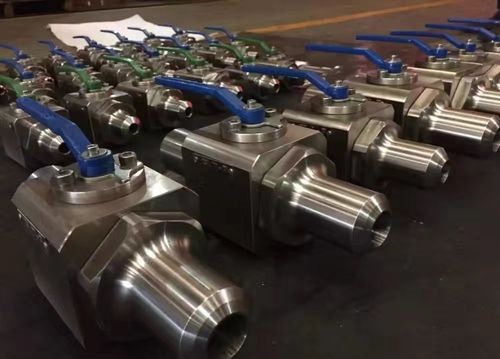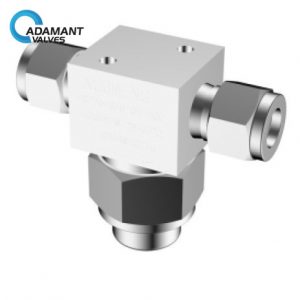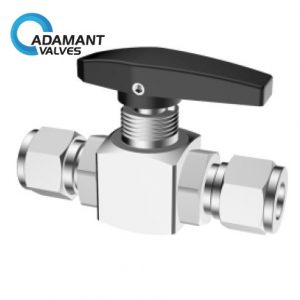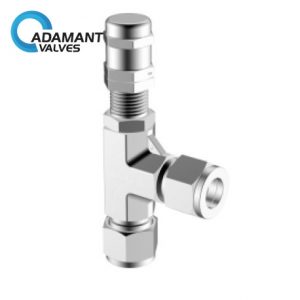How To Select Valves In Different Temperatures

Control valves such as linear globe valves, tri-clamp ball valves, and rotary valves are essential aspects of a production and manufacturing process and play a critical role in various process industries. Control valves are designed to control the flow of fluids in a system.
They are designed to allow adequate control of fluid by allowing easy on and off and throttle the fluid flow to ensure that the operation and process are smooth and efficient. The importance of valves has increased over the years and they are used in different process industries.
Every valve has a different specification and is used for different purposes. Several factors must be considered before purchasing or using a valve. Users may be confused about what kind of valve to choose from a large selection of different valves.
Factors To Consider When Selecting A Valve For A Process
The following will help when selecting a control valve and will ease the selection process for your next project:
- Flow control characteristics: know the maximum and minimum pressure and the acceptable temperature that the fluid will be transferred. Knowing the maximum and minimum inlet and outlet pressure that the valve will handle will help you select a valve with the right specification that meets all of these requirements.
- Fluid to be transferred: the kind of fluid that is to be transferred in the process determines the specification of the valve to use. Control valves control the flow of fluids like natural gas, compressed air, steam, liquefied petroleum, hydraulic fluid, slurry, and water. The valve needs to be suitable for any of this kind of fluid.
- Compatibility with remote systems: the environment for certain processes may be hazardous, and as such, there will be a need for the process control to be done remotely. The kind of valve you select must be suitable for the remote process management systems. This will ensure easy remote control and monitoring.
How Temperature Affects Valve Selection
The temperature of the system media running through a valve and the ambient operating temperature of the process environment are significant factors that determine the kind of valve to use. The process may involve changing temperatures, or the temperature may be kept constant.
The valve selected must account for this temperature fluctuation to avoid expansion and contraction that may affect the flow of the process fluids and materials.
Metallic components can quickly lose strength at a very high temperature. This may affect their pressure ratings and reduce it as time goes on, so it is essential to select the right valve made from the right materials and meet the temperature specification and application needs.
How To Select Valves in Different Temperature?
While selecting a valve for different temperatures, it is vital to consider the material it is made of, the operating temperature of the flowing media, and the process temperature.
When choosing a valve in a high-temperature process, materials with low-temperature resistance should not be considered. The kind of valves to consider are ceramic-lined special valves with a cooling jacket structure. Water circulates in the cooling jacket and ensures that the internal metal of the valve remains in place and within the allowable stress range.
When choosing a valve for a process with a low temperature below -29℃, you should select a valve made of low-temperature resistant materials. These kinds of materials have very high toughness and a good heat capacity such that the cooling load from the action would not crack the valve.
Using Tri-Clamp Ball Valves in High-Temperature Applications
Tri-clamp valves have significant application in the brewery, winery, dairy, and food processing industries. These valves have significant uses in this industry because their specification matches the temperature changes that usually accompany these processes.
They are made from high-grade stainless steel to ensure adequate hygiene needed for the food manufacturing process. The tri-clamp ball valve is a kind of sanitary ball Valve. The tri-clamp ball valve is a popular piece of Brewers Hardware. The brewery’s valves are manufactured from high-grade 304 stainless steel and a polished finish. You can get quality tri-clamp ball valves from adamant valves.
Final thoughts
The selection of a valve based on temperature depends on the temperature of the fluid media and the ambient temperature of the processing equipment. Different valves are suitable for different temperatures.
Are you looking for high-quality stainless steel tri-clamp ball valves? Look no further. You can visit Adamant valves to get the best sanitary valves, including stainless steel ball valves, butterfly valves, shut off and invert, check and diaphragm valves for different applications in different temperatures. You can quickly contact any of our experts to help you with a valve option best suited for your system by calling us at (949) 407 8897.




